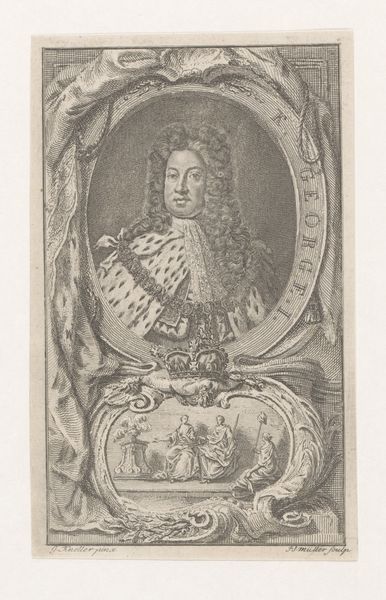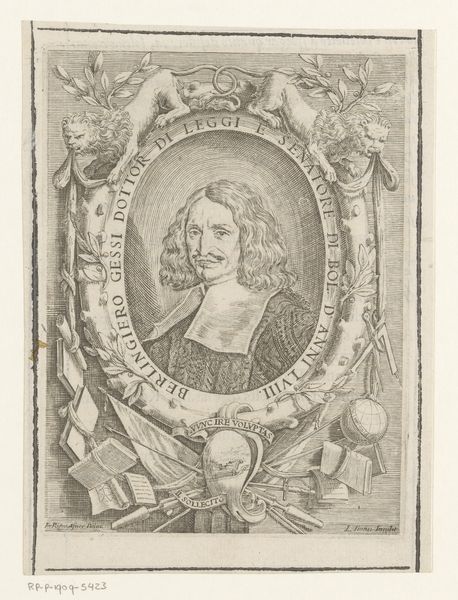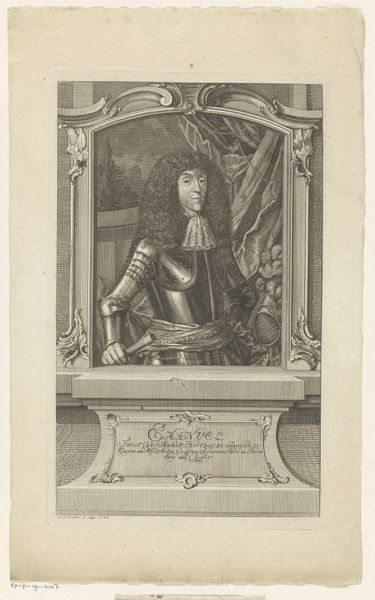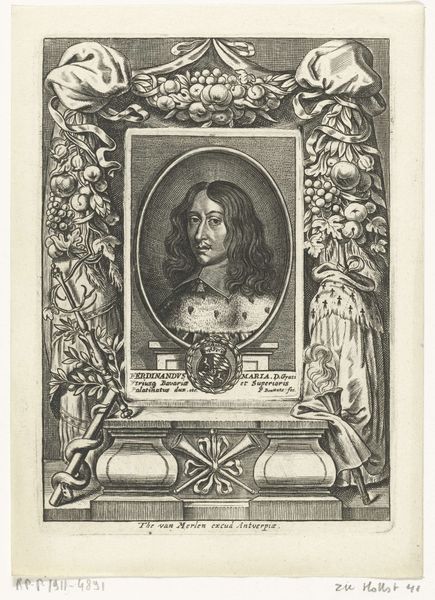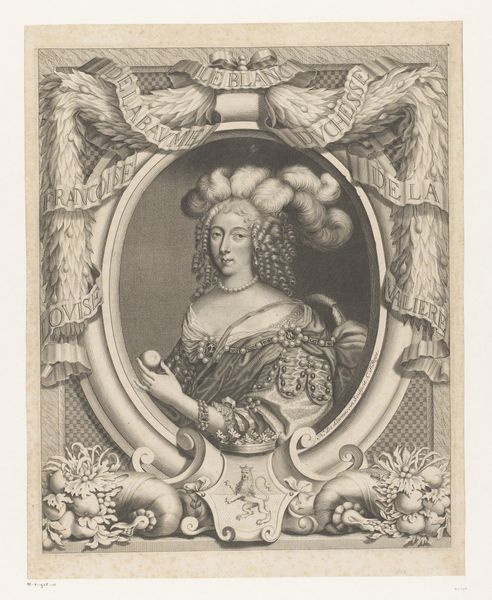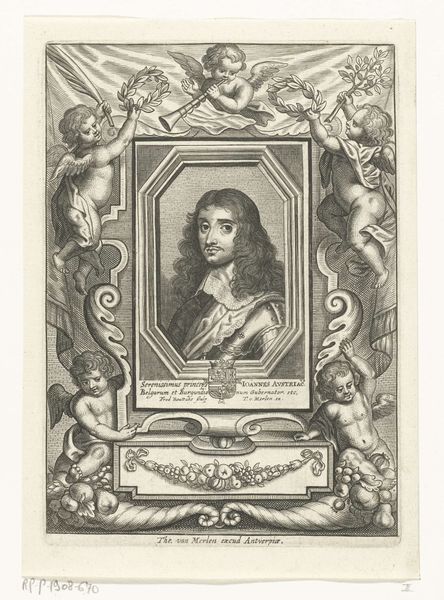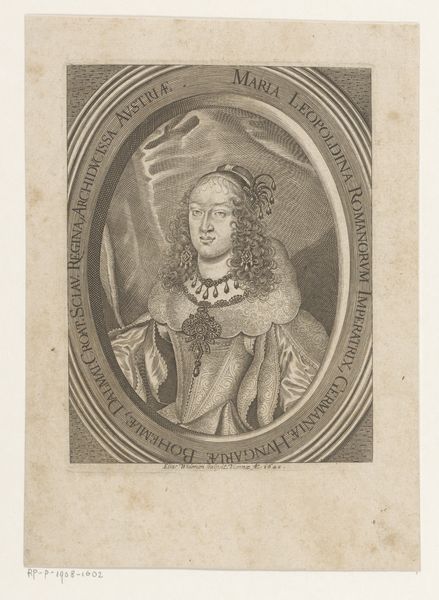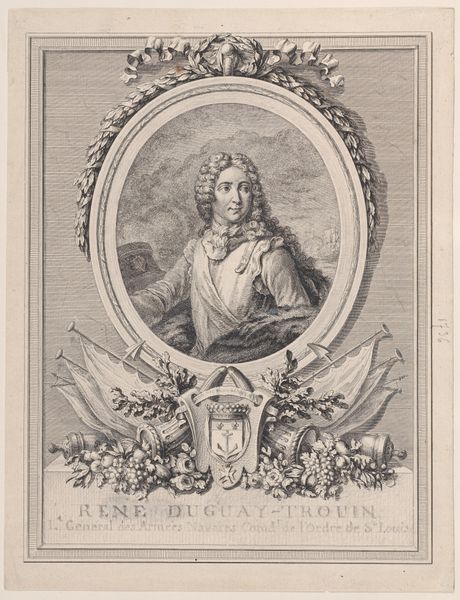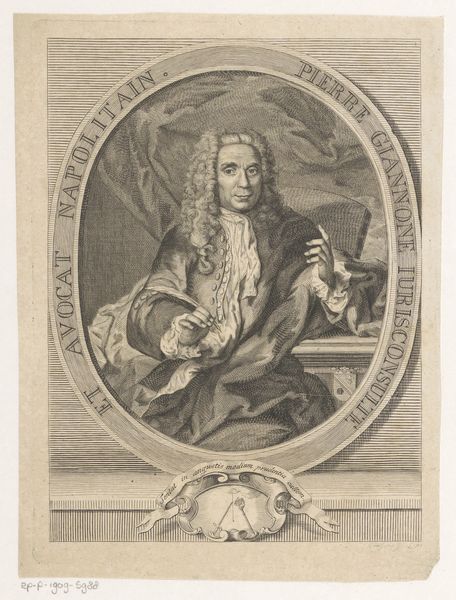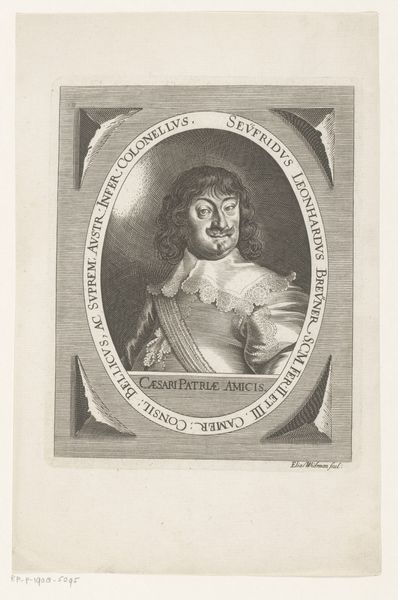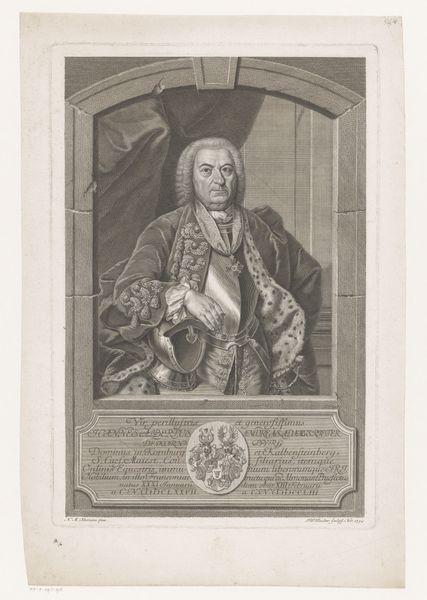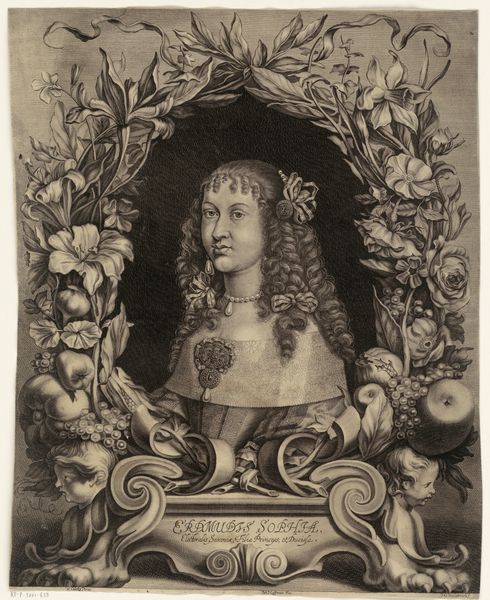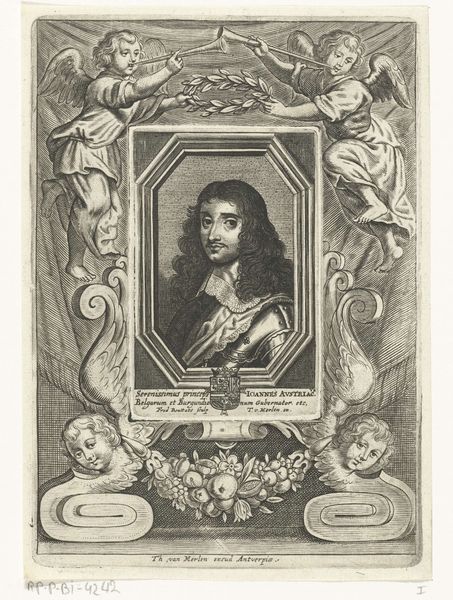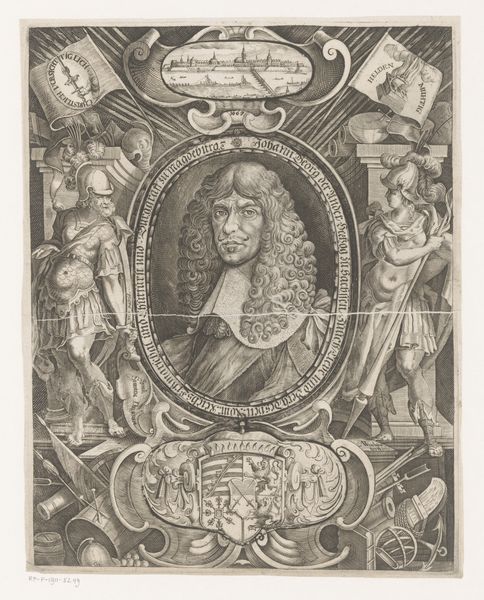
print, engraving
#
portrait
#
baroque
# print
#
history-painting
#
engraving
Dimensions: height 144 mm, width 109 mm
Copyright: Rijks Museum: Open Domain
This portrait of the poet Ludovico Tingoli was created by Lorenzo Tinti, probably in the mid-17th century, using engraving. Look closely and you’ll see that the image is made up of thousands of tiny etched lines. The artist would have used a tool called a burin to cut these lines into a copper plate, and the depth and density of these lines create the image’s tonality and texture. The whole process required incredible skill and precision, embodying a tradition of artisanal expertise that stretches back centuries. However, engraving was also a key technology in the development of capitalism, facilitating the mass production of images, and this portrait is a great example. Produced in multiples, it could be widely disseminated, contributing to Tingoli’s fame. The print medium allowed his likeness to circulate, enhancing his reputation and his cultural capital. So, next time you look at a print, remember that it's not just an image. It’s the result of a complex interaction between hand skill, mechanical reproduction, and the social forces of its time.
Comments
No comments
Be the first to comment and join the conversation on the ultimate creative platform.
